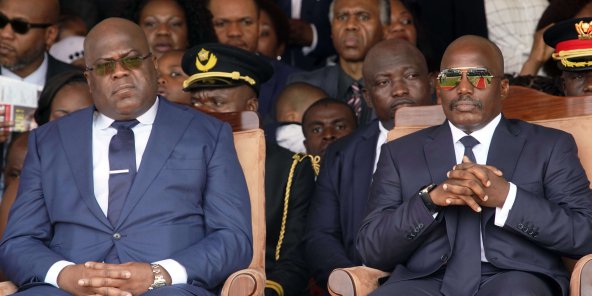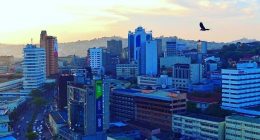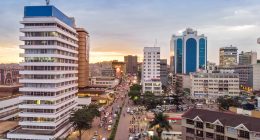After assuming the reins of power in a hotly contested general election, President Felix Tshisekedi is faced with an uphill task of maintaining the legitimacy of his government.
In January 2019, Tshisekedi took office, despite critics claiming the election he won was rigged. Now opposition voices are accusing the new president of being Joseph Kabila’s puppet. Critics add that he is unproven, inexperienced and lacks the charisma of his father.
Both in the region and beyond, many argue that, whatever its flaws, the presidential election at least produced a transition from the long presidency of Joseph Kabila, and offers the best bet to preserving stability in DRC and the wider Great Lakes region. They may well be wrong on both counts.
Tshisekedi inherits a weakened government battered and consumed by decades of political turmoil and economic paralysis.
The state is weak while unemployment is rife and modest health care and education are inaccessible for most people.
Social security is at an all-time low which is escalating discontent among the masses that are agitating for robust reforms such as improved service delivery, managing insecurity and health emergencies such as Ebola.
Is Tshisekedi the right man for this job?
Many political analysts believe that calming the storm in Kinshasha and the entire DRC will require consolidating the interests of the coalition led by former President Joseph Kabila and the opposition led by Martin Fayulu’s political front among other warring parties.
Fayulu who was runner up in the presidential election continues to drum up resistance from his political allies Jean-Pierre Bemba and Moise Katumbi and the electorate, a key constituency whose support Tshisekedi needs to drive his development agenda.
However, despite the ongoing troubles in the east, the DRC is more stable today than it was five years ago. Several militants groups have laid down their arms or integrated into the national army.
Tshisekedi must also reform the judiciary and give it the means to prosecute crimes at all levels – from those committed in war, to violence against women as well as those related to corruption.
With assistance from the European Union and China, access to health care and infrastructure are improving. It remains to be seen if Tshisekedi can seize this existing goodwill and embark on nation building.









